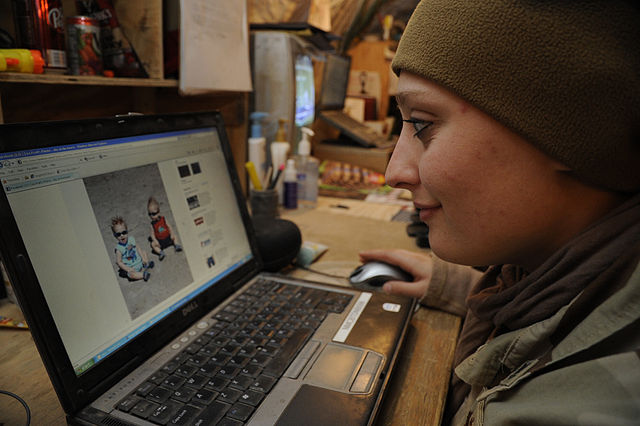Hardly a day passes when I don’t see a parent sharing something cringeworthy about one of their children.
There are the potty accident posts, the embarrassing photos, and the tales of bad behavior that are gleefully shared on social media. The friends laugh, comment, and, in some cases, the stories go viral.
When it happens, I wonder…did the child consent to this?
I used to be that parent, too. I would share things about my children that I thought were funny or cute. It wasn’t until they got a little older that I began to think about whether they would want those stories and photos shared.
So, I did a radical thing—I began to ask them for their permission to share things about them. Sometimes, they say “yes,” and sometimes they say “no.”
Whatever they say, I respect their response and behave accordingly. Whenever I’ve published a story or a poem that tells of something relating to my children, they read it first, we discuss it, and, if they don’t feel comfortable with it, I don’t share it.
I believe that children have the right to consent to what is shared about their lives. As we all know, the internet is forever and once something is out there, we can’t pull it back. We can’t control or determine where it goes once it is shared and, not only are we violating their right to privacy, but we are also exposing them to an entire internet full of strangers.
Consent is mostly an issue that comes up when children are older and we begin having discussions about sexuality and affirmative consent. But, learning about their right to autonomy begins much earlier. Every time a decision is made about a child without their input, the implicit message is: “Your voice doesn’t matter.” Every time we tell a child what to wear, we are teaching them that our desires are more important than theirs. Every time the people they most trust violate their privacy, they feel less secure and powerful.
Children ought to have a right to speak up when it comes to their lives and to what extent their private lives are shared in a public forum. They ought to have a say about what goes on their bodies. They ought to be able to say “no” and have it respected, which will then help them understand that their “yes” is equally powerful.
In our house, we have a rule: when we are playing, if someone says “stop,” it’s immediate hands off. We knock on each other’s doors when they are closed and we don’t enter another’s private space without permission.
My children know that their bodies are their own and they are entitled to quiet, private space. They also know that, unless they agree to it, I’m not sharing information, photos, or stories about them. Even at their young age, they understand that they have some measure of sovereignty over what happens in their lives and it gives them a sense of power. They are ingrained with a deep sense of knowing what suits them, what doesn’t, and how to assert their needs, hold their boundaries, and say “no” to what feels wrong.
Children are not little extensions of their parents—they are unique individuals with their own experiences of the world. We, as parents, have a duty to respect their unique essence and to teach them from as early as possible that they have autonomy, rights, and the ability to choose what is most comfortable for them.
As parents, it is incumbent upon us to create the environment where our children feel empowered, secure, and as though they have the right to privacy. They will take those lessons into their adulthood, and a child who is raised with a strong sense of autonomy will become an adult who not only respects their own ability to consent, but also others’.
relephant read:
No, My Child Does Not Have to Hug You: Why I’m Raising my Toddler to Understand Consent.
~
Author: Lisa Vallejos, PhD
Image: Wikimedia Commons
Editor: Leah Sugerman
Copy Editor: Khara-Jade Warren
Social Editor: Nicole Cameron












Read 1 comment and reply